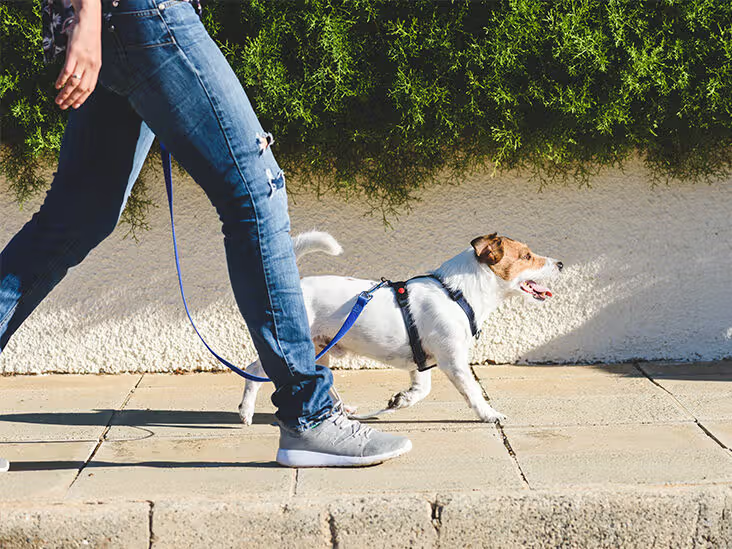Coping with Stress and Anxiety: Practical Tools for a Calmer Mind

In today’s demanding and fast-paced world, stress and anxiety have become common challenges for people of all ages. While occasional stress is a normal part of life, chronic stress and ongoing anxiety can take a serious toll on your mental and physical health if not addressed.
Fortunately, there are practical tools and lifestyle changes you can adopt to manage these feelings and foster a sense of calm, clarity, and resilience.
😟 What Are Stress and Anxiety?
Stress is your body’s response to a demand or challenge. It can be triggered by deadlines, responsibilities, life changes, or unexpected events.
Anxiety is more persistent—it involves ongoing worry, nervousness, or fear, often without a clear cause.
While stress and anxiety share similarities, anxiety may linger even after the stressor is gone.
🚨 Signs You May Be Experiencing Chronic Stress or Anxiety
- Constant feelings of tension or nervousness
- Trouble sleeping or frequent fatigue
- Rapid heartbeat or shortness of breath
- Headaches, muscle tension, or stomach issues
- Difficulty concentrating
- Irritability or restlessness
- Avoiding situations that make you feel anxious
If left unmanaged, these symptoms can interfere with daily life and increase the risk of health problems like high blood pressure, depression, and heart disease.
🧘 Practical Tools for Managing Stress and Anxiety
Here are some simple, evidence-based strategies you can start using today to feel more in control and at peace.
✅ 1. Deep Breathing Exercises
How it helps: Slows your heart rate and activates your body’s natural relaxation response.
Try this technique:
- Inhale slowly through your nose for 4 seconds
- Hold your breath for 4 seconds
- Exhale gently through your mouth for 6 seconds
- Repeat for 2–5 minutes
Tip: Practice this during stressful moments or before bed to relax your mind and body.
✅ 2. Mindfulness and Meditation
How it helps: Brings your attention to the present moment, helping you detach from racing thoughts and fears.
Getting started:
- Try guided meditations on apps like Headspace or Calm
- Practice “5-4-3-2-1” grounding: name 5 things you see, 4 you can touch, 3 you hear, 2 you smell, and 1 you taste
- Spend 5–10 minutes a day sitting quietly and focusing on your breath
Mindfulness isn’t about stopping your thoughts—it’s about observing them without judgment.
✅ 3. Physical Activity
How it helps: Releases endorphins, improves mood, reduces muscle tension, and boosts overall energy.
Recommendations:
- Go for a brisk 20-minute walk
- Try yoga or stretching
- Join a dance, aerobics, or martial arts class
- Use exercise to redirect anxious energy
Consistency is key—even light activity several times a week can make a difference.
✅ 4. Limit Caffeine and Sugar
How it helps: Stabilizes your energy and mood. Excess caffeine can increase feelings of jitteriness and anxiety.
Tips:
- Replace coffee with herbal teas like chamomile or lemon balm
- Eat balanced meals with complex carbs, lean proteins, and healthy fats
- Stay hydrated
✅ 5. Journaling
How it helps: Allows you to process emotions, reflect on patterns, and gain clarity.
What to write:
- What you’re feeling and why
- What you’re grateful for today
- What small step you can take toward self-care
Even 5–10 minutes of writing daily can ease mental clutter and offer emotional relief.
✅ 6. Sleep Hygiene
How it helps: Quality sleep improves emotional regulation and stress tolerance.
Healthy habits for better sleep:
- Stick to a consistent bedtime and wake time
- Avoid screens 1 hour before bed
- Use blackout curtains or a sleep mask
- Try calming activities before bed like reading or soft music
✅ 7. Stay Connected
How it helps: Social support reduces stress, provides perspective, and boosts mental resilience.
Ideas:
- Talk to a trusted friend or family member
- Join a support group or online community
- Don’t be afraid to share how you’re really feeling
✅ 8. Know When to Seek Professional Help
Sometimes stress and anxiety require more than self-help strategies—and that’s okay.
Consider talking to a mental health professional if:
- Your symptoms last more than a few weeks
- They interfere with work, relationships, or daily tasks
- You experience panic attacks or persistent dread
- You’re having thoughts of self-harm or hopelessness
Therapy, counseling, and medication can all be part of a healthy and effective treatment plan.
🌈 Creating a Calm and Resilient Mindset
Managing stress and anxiety is not about eliminating every challenge—it’s about learning how to respond with clarity, compassion, and confidence.
Build resilience by:
- Focusing on what you can control
- Practicing self-compassion
- Setting realistic goals
- Creating routines that support calm and clarity
- Celebrating small wins
FAQs: Coping with Stress and Anxiety
1. What’s the difference between stress and anxiety?
Stress is typically a response to an external cause, while anxiety is a persistent internal feeling, often without a clear trigger.
2. Can lifestyle changes really reduce anxiety?
Yes. Exercise, sleep, nutrition, and mindfulness have proven benefits for reducing stress and anxiety.
3. Is medication necessary for anxiety?
Not always. Many people find relief through lifestyle changes and therapy, but medication can be helpful for moderate to severe symptoms.
4. How long does it take for stress management techniques to work?
Some strategies, like deep breathing, offer immediate relief, while others, like exercise or journaling, show results over weeks.
5. Are there foods that help with anxiety?
Yes—foods rich in magnesium, omega-3 fatty acids, and B vitamins (like leafy greens, salmon, and nuts) can support brain health and mood.
6. Can anxiety go away on its own?
Mild anxiety may fade with lifestyle improvements, but persistent or worsening anxiety may need professional support.
7. Is anxiety a sign of weakness?
No. Anxiety is a common and treatable condition, not a reflection of your character or strength.
8. Where can I get help for anxiety or stress?
Start by speaking to your doctor, or look for licensed therapists, online counseling platforms, or community mental health centers.
✅ Conclusion
Stress and anxiety are part of the human experience—but they don’t have to control your life. With the right tools, support, and mindset, you can navigate difficult moments with strength and grace, and reclaim a sense of calm and emotional balance.
Remember: You are not alone. Help is available, and healing is possible—one breath, one step, one day at a time.

